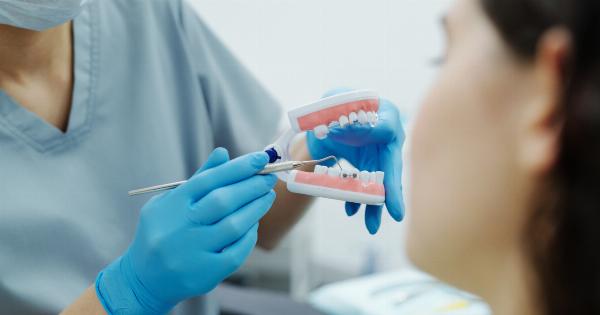Jaw pain is a common problem affecting many people at some point in their lives. This pain can be quite debilitating, making it difficult to eat, speak, and even sleep.
On the other hand, headaches are also common and can be caused by several factors, including stress, dehydration, and sinus issues. However, many people may not know that there is a connection between jaw pain and headaches. In this article, we will look at some of the causes of jaw pain and headaches and how they are related.
The Anatomy of the Jaw
To understand the relationship between jaw pain and headaches, it is essential to know the anatomy of the jaw. The jaw is made up of several bones, including the mandible (lower jaw), maxilla (upper jaw), and several connecting muscles.
The temporomandibular joint (TMJ) is the joint connecting the mandible and temporal bones of the skull. This joint is responsible for the opening and closing of the mouth and the movement of the jaw when talking, chewing, or yawning.
Causes of Jaw Pain
The jaw pain can be caused by several factors, including:.
- Bruxism: This is a condition where an individual grinds or clenches their teeth, resulting in continuous pressure on jaw muscles and joints.
- Temporomandibular Joint Disorder (TMD): This is a disorder that occurs when the muscles and joints that control the jaw movement become inflamed. It can cause pain and discomfort in the jaw joint, neck, and ears.
- Malocclusion: This condition occurs when an individual has a misaligned bite, causing their teeth not to fit correctly. It can put undue pressure on the jaw muscles, resulting in pain.
- Dental Issues: Cavities, gum diseases, infected wisdom teeth, and other dental problems can cause pain in the jaw.
Causes of Headaches Related to Jaw Pain
Jaw pain can cause several types of headaches, including:.
- Tension headaches: These headaches cause mild to moderate pain and a sensation of tightness in the forehead, scalp, or the back of the neck.
- Migraines: These headaches can cause severe pain and can last for several hours or days.
- Cluster headaches: These are rare but can be quite painful. They cause pain on one side of the head and are often associated with jaw pain.
How Jaw Pain Leads to Headaches
When a person experiences jaw pain, the muscles around the temporomandibular joint become inflamed and tense. This tension can extend to the muscles in the neck, head, and shoulders. As a result, the individual may experience headaches.
The tension and pain in the jaw muscles can also make it challenging to open and close the mouth and chew food properly. This further aggravates the jaw pain, leading to headaches.
Treatment for Jaw Pain and Headaches
Treatment options for jaw pain and headaches depend on the cause of the pain. For example:.
If the cause of the pain is bruxism, one may need to wear a night guard to reduce the pressure on the jaw muscles. A physical or occupational therapist can help individuals with TMD learn exercises to help reduce inflammation and improve jaw function.
If the pain is caused by a misaligned bite, one may need orthodontic treatment to align the teeth correctly. Dental issues can be treated by a dentist or dental specialist.
For headaches caused by jaw pain, over-the-counter pain medications may help. In severe cases, a doctor may prescribe muscle relaxants or other medications to alleviate symptoms.
Preventing Jaw Pain Related Headaches
Prevention is better than cure, and there are several things that one can do to prevent jaw pain related headaches:.
- Avoid clenching or grinding the teeth
- Exercise regularly to help relieve tension in muscles
- Reduce stress levels using stress-reduction techniques
- Avoid chewing gum or hard foods like gummy bears that put extra stress on the jaw muscles
- Visit a dentist regularly for oral checkups
Conclusion
Jaw pain and headaches can be interconnected, and it is essential to understand the causes and symptoms to manage the conditions effectively.
If you have been experiencing jaw pain and headaches, make sure to talk to your doctor or dentist to get a proper diagnosis and treatment suitable for your specific condition.



























